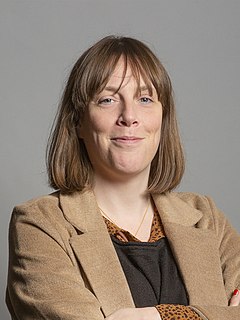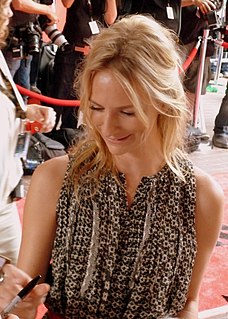A Quote by Rachel Hunter
By the time I was 29 I'd spent eight years with someone else's group of friends. I had no idea what it was like to be a woman with mates of her own to socialize with.
Related Quotes
All you can do is make a piece of product, sell it on its own terms, stand behind it and hope that people will go see it. If you try to be like something else or appeal to any given group, then you can very easily end up being gratuitous and imitative. There's not much to be gained by that and I think too much time is spent going around trying to be like someone else.
I just spent a lot of time on 'ER' for that eight years. I also started working when I was 16, so by the time I left 'ER,' I was 40 years old, I had this incredible experience, my wife had this great company, we had four kids, it was like, 'Let's go to New York and live for a while and make that the priority.'
The point I wish plainly to bring before you on this occasion is the individuality of each human soul--our Protestant idea, the right of individual conscience and judgment--our republican idea, individual citizenship. In discussing the rights of woman, we are to consider, first, what belongs to her as an individual, in a world of her own, the arbiter of her own destiny, an imaginary Robinson Crusoe with her woman Friday on a solitary island. Her rights under such circumstances are to use all her faculties for her own safety and happiness.
From an early age she had developed the art of being alone and generally preferred her own company to anyone else’s. She read books at enormous speed and judged them entirely on her ability to remove her from her material surroundings. In almost all the unhappiest days of her life she had been able to escape from her own inner world by living temporarily in someone else’s, and on the two or three occasions that she had been too upset to concentrate she had been desolate.
Dena had always been a loner. She did not feel connected to anything. Or anybody. She felt as if everybody else had come into the world with a set of instructions about how to live and someone had forgotten to give them to her. She had no clue what she was supposed to feel, so she had spent her life faking at being a human being, with no idea how other people felt. What was it like to really love someone? To really fit in or belong somewhere? She was quick, and a good mimic, so she learned at an early age to give the impression of a normal, happy girl, but inside she had always been lonely.
Those silly girls had no idea what they were really celebrating. They had no idea what it took to bring Agatha and her friends together seventy-five years ago. The Women's Society Club had been about supporting one another, about banding together to protect one another because no one else would. But it had turned into an ugly beast, a means by which rich ladies would congratulate themselves by giving money to the poor. And Agatha had let it happen. All her life, it seemed, she was making up for things she let happen.
Selfishly, perhaps, Catti-brie had determined that the assassin was her own business. He had unnerved her, had stripped away years of training and discipline and reduced her to the quivering semblance of a frightened child. But she was a young woman now, no more a girl. She had to personally respond to that emotional humiliation, or the scars from it would haunt her to her grave, forever paralyzing her along her path to discover her true potential in life.
A woman spent all Christmas Day in a telephone box without ringing anyone. If someone comes to phone, she leaves the box, then resumes her place afterwards. No one calls her either, but from a window in the street, someone watched her all day, no doubt since they had nothing better to do. The Christmas syndrome.










































